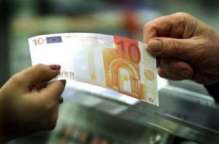Is the European engine room finally gearing up?

Despite the fact that there are now 25 countries in the European union, the economic vigour of the region largely depends on two countries; France and Germany. For some time now it has been as if the two old members of the union has been stuck in first gear with shaky growth fixtures and a high rate of unemployment, but that may well change now.
In Germany the conditions have at least improved as the political state of limbo is now being replaced by a murky yet functionable grand coalition between Merkel's CDU and Schroeder's SPD. Merkel wins the chancellor seat but the tolls are great as the SPD clinches the ministries of finance, foreign affairs and the crucial interior ministry in charge of the much debated and needed labour market reform - see article from the Economist here.
In France things are also looking increasingly bright. After Raffarin's resignation following the rejection to the constiution the new Prime Minister Villepin initiated the 100 day plan pledging to improve especially the uemployment. One of the most notable reforms has been the initiation of a new flexible labour contract for businesses employing fewer than 20 employees. The 100 day mark ended some time ago but finally it seems that his efforts are paying off. August displayed the fifth consecutive month of decline in the uemployment rate in France also pushing it down under the 10% mark - "Le taux de chômage s'établit à 9,9% de la population active"; see article from le nouvelobservateur here. Mr. Villepin is obviously satified with this but proclaimed in traditional French statesman manner that the obejctive was not yet accomplished - "La priorité de mon gouvernement, c'est l'emploi, rien ne doit nous divertir de cet objectif"; see other reactions here. Also the French industrial sector is shaping up as shown in this article from Bloomberg - "I'm optimistic for French companies,'' said Jean-Paul Villot, chief executive officer of Neopost, in an interview. The ones that are expanding are expanding much more abroad than in France.''
I think that these are good signs for Europe. Although the grand coalition in Germany is in danger of becoming an institutional mudthrowing and a German version of filibustering the fact the Merkel and not Schroeder is at the helm is crucial in my opnion not only for Germany but most importantly also for Europe, althouhg I am not happy about Ms. Merkels regressive view of Turkish membership.
The French signs are just plain good ones, but more labour reforms are most likely necessary to get closer to full employment. It simply must get easier for businesses to hire work without the fear of getting caught in expenses if sales begin to drop.